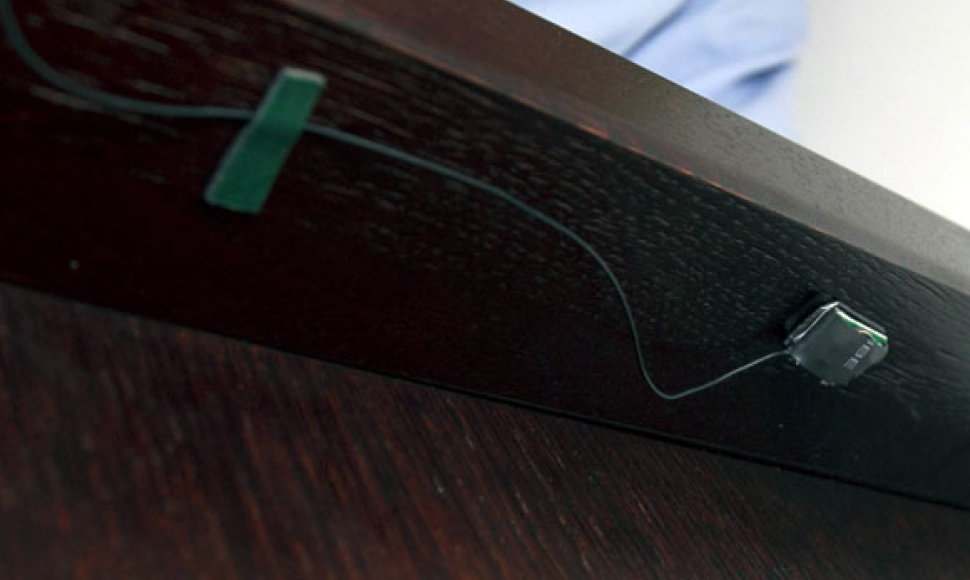"We told the commission we had no right to supply the information, if we did, we would violate the exiting legal acts," Valdas Meidus, chairman of Panevėžys regional court, told journalists after meeting with the parliamentary commission on Friday.
The Parliamentary commission had summoned chairmen of regional courts of Kaunas, Šiauliai, Panevėžys and Klaipėda to clear up the reasons behind their failure to provide information about possible unlawful spying on journalists.
Kaunas regional court chairman Nerijus Meilutis said he could not reveal the number of tapping sanctions that had been issued, noting that the impression of courts handing out the sanctions was wrong.
"I cannot give you precise figures, I do not want to lie or mislead you, but the figures are not small at all. Nevertheless, the court examines every application thoroughly before deciding whether it should be granted or not," Meilutis said.
He was also unwilling to specify if any of the applications were asked to tap journalists: "We have received tapping requests for various people, I would not like to specify their professions."
"I have personally rejected numerous requests, so it is wrong to say that courts don't look – they do in a very thorough manner, and not all applications are satisfied," the Kaunas court chairman said.
The issue on sanctions was raised a few years ago, when the commission started investigating public reports about unlawful tapping of journalists' phone calls. The investigation then launched by the parliamentary panel resulted in a task force for improvement of the Law on Operational Activities.
Members of the commission said the problem lied in the fact that laws allowed special services to go to any district court for sanctions, therefore, there have been cases when, after a negative ruling from one court, another would grant a warrant a few hours later.
Ramelis has already registered an amendment, which would stipulate more rigid regulation for tapping warrants.
He said the bill was aimed at preventing unjustified sanctions, as well as "improving the control mechanism of sanctioning procedures necessary for parliamentary scrutiny."












